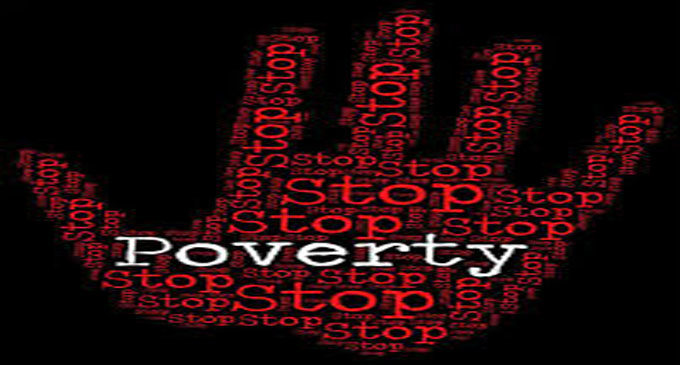Commentary: People in poverty want some joy, too

By John Ralley
For Winston-Salem State University psychology professor Michele Lewis, two recent news stories were jarring, one about officials shutting down The Wharf, a popular outside seafood market in Washington, D.C., because patrons were not practicing social distancing, another about Los Angeles police breaking up a backyard birthday party for a child in a modest neighborhood. Both photos showed large numbers of African Americans. Those continuing to gather include some of low financial resources.
Online commenters on the news stories said how bad it was that the people were not following the health rules. While Lewis felt this was troubling from a health perspective, she also felt that the photos showed people experiencing joy by coming together, an experience that may be especially important to them now as pressures of living in poverty mount even more during the pandemic. Black people, she said, are of collectivist cultures, meaning “I am because we are.”
“I think a lot of people forget people in poverty want to feel good, too,” she said. “People outside might want to judge and say, ‘They don’t care about the virus.’ It’s not that. You want to feel some joy, whether you have $20 in your pocket or $2. People are doing things that bring a boost of pleasure to the brain, and being together brings pleasure at minimal financial expense.”
Lewis, an associate professor in the department of psychological sciences, studies the bio-psycho-social effects of poverty. As a 2017-18 Fellow at WSSU’s Center for the Study of Economic Mobility (CSEM), she explored whether optimal decision-making and motivation are compromised by poverty. During the summer of 2018, she and student researchers met weekly with 11 Black women experiencing poverty, most of whom were residents of East Winston. Regarding the women, Lewis highlighted just how intense the pressures of decision-making are in poverty. The pandemic has increased those pressures.
Anecdotally, Lewis said, she knows of African Americans gathering for family cookouts, birthdays and other events during COVID. “There’s psychological and spiritual healing that comes from this being together as one,” Lewis said. “People in poverty are no different from anyone else in wanting to experience joy, but they do it in a way that is affordable and familiar to them. Instead of harshly judging these decisions, this should be understood.
“Frontline workers who are African American are driving buses [in the pandemic]. They’re still cleaning buildings. They’re still cooking. If you’re collectivist in your cultural inclination, being with your closest friends and family is going to remain important. This is social selectivity rather than social distancing.”
She hopes to build on the work she started with the women in East Winston. “For the women, their family and their children, in particular, were ongoing sources of motivation and wellness for them. Repeatedly, the women referred to their strength coming from their children. They wanted to do things to benefit their community, and the kids coming after them.”
The sense of collectivism is a source of strength in dealing with the pressures of poverty. As one example, Lewis said the women she worked with “were very irritated by folks commenting on why they would want to have an iPhone if they are challenged by poverty.”
“What is it about living in poverty that reduces other people’s ability to see them as human and wanting technologies that others enjoy?” she asked.
The women strategized daily about how to stretch their limited dollars. “It’s very taxing on the brain,” Lewis said. “Everyone has to make decisions daily involving money. But depending on your social class, the way you do it is different.” For example, she said, parents might want to give their child a birthday party, even if that cost means a late payment on a bill. The priority is on bringing joy to the child, the same as upper-middle-class parents want to do.
“COVID has added yet another layer of stress to the brain’s decision-making and executive-functioning,” she said. “Just imagine what is happening to families of low resources who’ve already been stressed out, who don’t have the luxury of working from home … The way we people of different social classes strategize about money is different. It shouldn’t be regarded as better or worse. It should be regarded as just different.”
The pandemic has underscored inequities in transportation, childcare and education. Lewis believes that policymakers should support policies and programs that bring assistance in the area of psycho-spiritual wellness, so that healthy-togetherness initiatives can be funded as important forms of coping.
It is also, she said, “very important not to dehumanize, in our minds, people in poverty.”
John Railey is the writer-in-residence at CSEM. He can reached at raileyjb@gmail.com. To learn more about CSEM, go to www.wssu.edu/csem.









